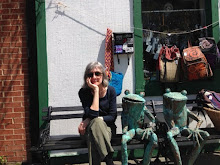Traditional Jewish Principles/Laws Relevant to the Subject of “Medically Induced Death”
1. Every human is created in the divine image. Human life is sacred, regardless of its quality or usefulness. The value of life does not depend on our abilities. Our bodies/lives/souls “belong” to God, not to us. We are responsible for preserving and not harming them.
A corollary: We are obligated to protect the vulnerable in society (elderly, minority, poor, mentally ill), whose lives may appear to be less “useful.”
In contrast: Yankee/American value of liberty – the right to do what we want with our bodies; and the utilitarian/pragmatic worldview that people are only of value if they are “doing” and “producing.”
2. Thou shall not murder. Jewish law prohibits murder (except in self-defense or war), and suicide (except death for God’s sake, not yours – i.e. martyrdom).
In contrast: Suicide is legal in all 50 states in the U.S.
3. Do not put a stumbling block before the blind (Lev. 19:14). This is understood metaphorically to mean: Don't mislead someone who is morally not seeing clearly. And do not cause or assist someone else to violate Jewish law (Avodah Zarah 55b). Since suicide is forbidden, assisting a suicide is a violation of these two principles.
4. While it is forbidden to do anything to “hasten” death (which would be a violation of the above principles), we may remove impediments to the natural dying process.
"It is forbidden to do anything to hasten the death of one who is in a dying condition…. If, however, there is something that causes a delay in the exit of the soul, as, for example, if near to his house there is a sound of pounding as one who is chopping wood, or there is salt on his tongue, and these delay the soul’s leaving the body, it is permitted to remove these because there is no direct act involved here, only the removal of an obstacle."
- Rabbi Moshe Isserles (16th century), commentary on Shulchan Aruch, Yoreh De’ah 339:1
See the story of the death of Rabbi Chananyah ben Tradyon (Avodah Zarah 18a)
5. We are required to do whatever we can to relieve the pain and suffering of a dying person, and may even pray for their death. (Some say you are obligated to pray for their death.)
See the story of the death of Rabbi Yehudah haNasi (Ketubot 104a), which is also a story of removing an impediment to the dying process -- in this case, his disciples' prayers for healing, which were keeping his soul from leaving his body!
Sources:
Matters of Life and Death: A Jewish Approach to Modern Medical Ethics, Dr. Elliot Dorff, 1998
“Who Shall Live…” A Report from the CCAR Task Force on Assisted Suicide, 2003
Recommended reading: Choosing Medically Induced Death, a white paper prepared by the Community Ethics Committee on Massachusetts Petition 11-12 on the subject alternatively known as Death with Dignity and Physician Assisted Suicide, July 2012
